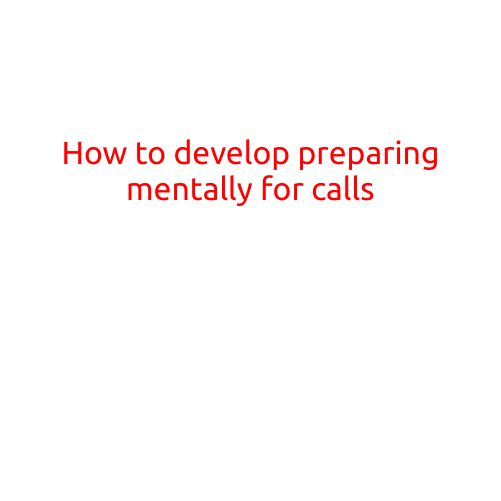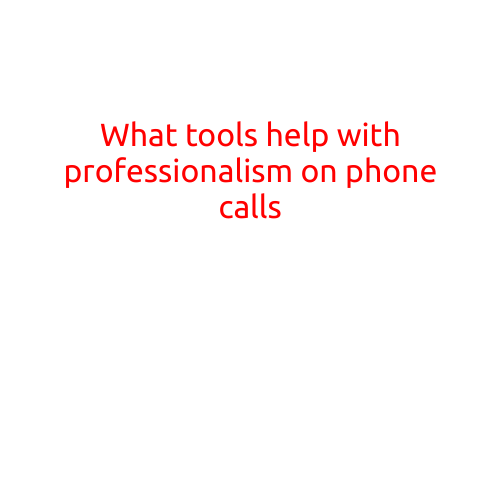
How to Develop: Preparing Mentally for Calls
As a sales professional, making calls is an inherent part of your job. Whether you’re prospecting for new clients, following up with existing ones, or conducting sales meetings, it’s crucial to be mentally prepared for those calls. A well-prepared mindset can mean the difference between success and failure, and can also impact your overall job satisfaction and productivity.
In this article, we’ll explore the importance of mental preparation for calls, the common obstacles that can hinder your performance, and provide actionable tips to help you develop a winning mindset for your calls.
The Importance of Mental Preparation
Preparing mentally for calls is more than just a good habit – it’s a vital component of your sales success. When you’re mentally prepared, you’ll feel more confident, focused, and equipped to handle any situation that arises during the call. This, in turn, can lead to:
- Increased conversion rates
- Improved engagement with potential clients
- Reduced anxiety and stress
- Enhanced overall job satisfaction
Common Obstacles to Mental Preparation
Despite its importance, mental preparation can be a challenge for many sales professionals. Common obstacles include:
- Fear of rejection
- Lack of confidence
- Distractions and interruptions
- Overwhelm and fatigue
- Difficulty articulating value
Tips for Developing a Winning Mindset
Fortunately, mental preparation for calls is a skill that can be developed with practice, patience, and persistence. Here are some actionable tips to help you develop a winning mindset:
- Set Clear Goals: Define what you want to achieve from each call, and prioritize your goals. This will help you stay focused and motivated.
- Visualize Success: Imagine yourself successfully closing a deal or having a productive conversation. Visualizing success can boost your confidence and prepare you for potential obstacles.
- Develop a Pre-Call Routine: Establish a consistent pre-call routine to get yourself mentally prepared. This might include exercises, meditation, or a quick recap of your notes and goals.
- Practice Active Listening: Pay attention to your body language and tone of voice. Make eye contact, nod to show you’re engaged, and use verbal cues to convey interest.
- Use Positive Self-Talk: Replace negative self-talk with positive affirmations. Remind yourself that you’re prepared, capable, and worthy of success.
- Manage Your Time Effectively: Plan your calls in advance, and allocate appropriate time for each conversation. Avoid multitasking and minimize distractions.
- Stay Positive and Open-Minded: Approach each call with a positive attitude and an open mind. Be prepared to adapt to new information and adjust your approach as needed.
- Learn from Failure: Don’t be too hard on yourself if a call doesn’t go as planned. Instead, identify what went wrong and use it as an opportunity to learn and improve.
Conclusion
Developing a winning mindset for calls requires intentional effort and commitment. By recognizing the importance of mental preparation, identifying common obstacles, and implementing practical tips, you’ll be better equipped to handle any situation that arises during your calls. Remember to stay positive, focused, and adaptable, and you’ll be poised for success in no time.





